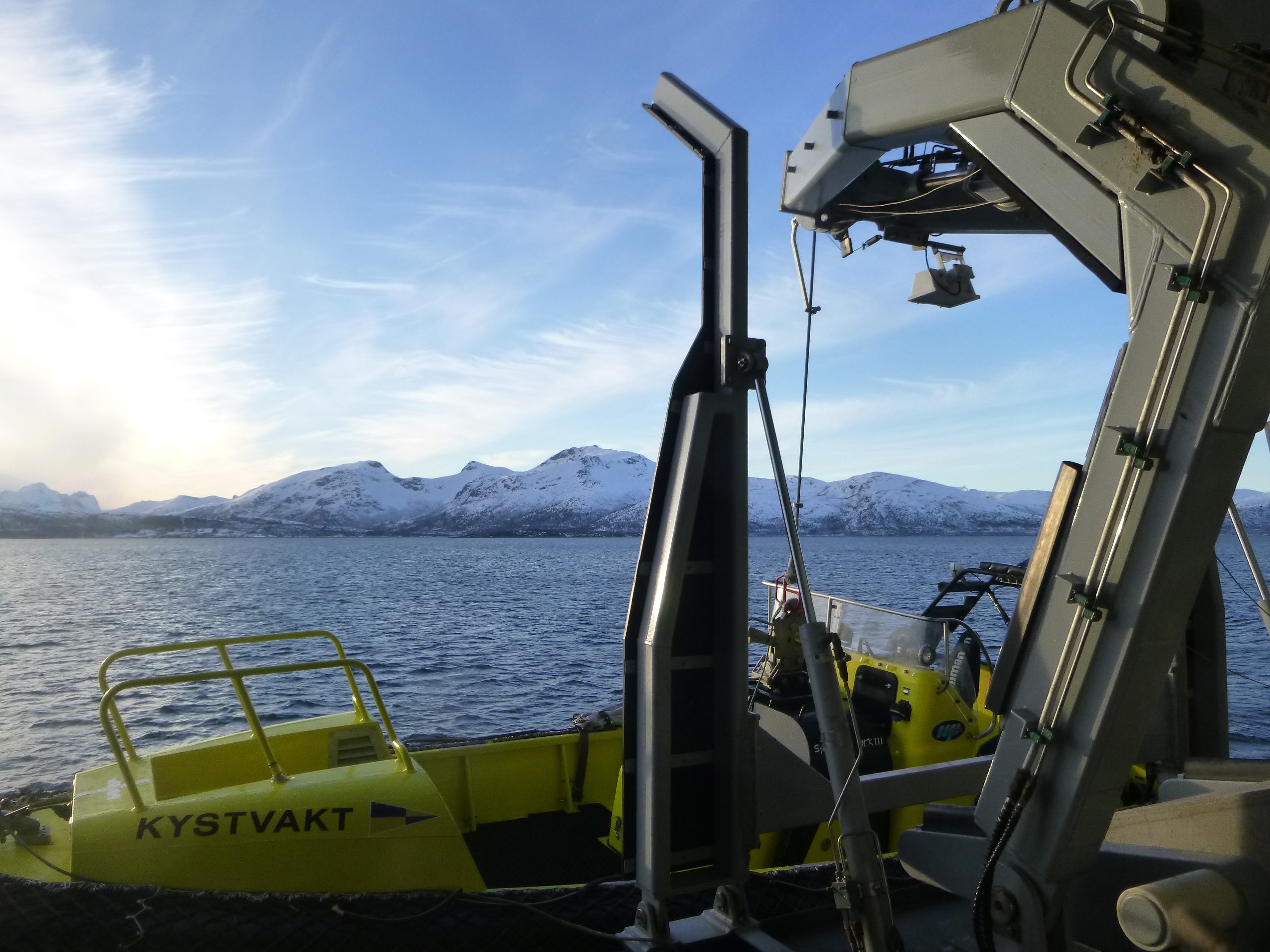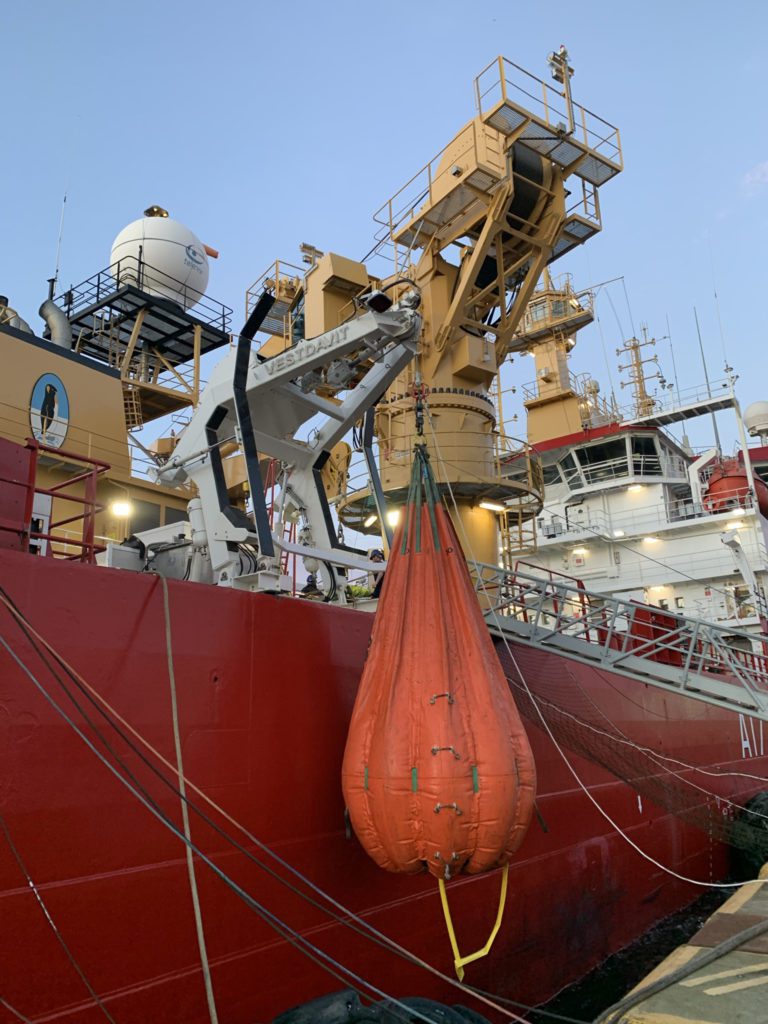Vestdavit positioned to score with new Dutch subsidiary
Press Release – Vestdavit has bolstered its presence in the European market with the launch of a new subsidiary in the Netherlands that positions it for business growth in one...

Press Release – While designing and producing davit systems that are fully operational in ‘normal’ conditions up to Sea State 6 is a challenge in itself, Vestdavit continues to win plaudits and orders from Navies, Coast Guards and Seismic Vessel Operators worldwide for its Polar Systems.
Designing davits for extremely low temperatures – in some cases down to -40°C – adds a layer of complexity, but 2020 has also seen the Bergen-based engineering company firmly establish itself as the industry leader in delivering davits for polar ships. In what are probably the harshest of maritime environments in the world, and certainly the most remote, reliability in boat launching and recovery is imperative.
One of Vestdavit’s Project Managers, Miss Hilde Laupsa explains the considerations that influence designing davits with advanced functionality for these special conditions.
“Every project is unique, and we need to start by analyzing what is required to protect the davit’s critical components from icing and low temperatures and to ensure that the overall system performance will meet the expected conditions.
“The most important consideration is the ability to de-ice components by building them into protective housings or passing hot cables around them. There are several factors that influence this including the placement of the davit on the vessel and which components will be on the deck. A HPU placed inside the ship, for example, is much easier to protect from the cold than one that is integrated on the actual davit structure.”
Laupsa emphasizes that Vestdavit acts with a great deal of autonomy in rising to design challenges. Although there is guidance from Classification Societies on approval of these very specialized products ultimately it is the equipment designer that ensures the davit performs to the end user’s expectations, she says.
Evidence of the types of challenges equipment can face in extreme conditions has been readily available in 2020 through the deployment of the Norwegian Coast Guard Vessel, KV Svalbard, which is equipped with two of Vestdavit’s PLR-5002 davits.
Earlier this year, KV Svalbard was dispatched at short notice to support the recovery of important data sensors in the Beaufort Sea, substituting for a United States Coast Guard vessel that was unable to sail due to damage. Official images from this high-profile task clearly showed the PLR-5002s in action, supporting boat operations both on the ice, and during more routine operations such as provisioning in Svalbard prior to departing on the task.
This year has also seen Vestdavit building on references such as KV Svalbard, with successes including the delivery of a new Fast Rescue Craft Davit for the Royal Navy’s HMS Protector, which was commissioned earlier this month.
The Royal Navy had a requirement for a new FRC Davit after procuring a newer, and larger Sea Boat in order to support a greater level of operational activity. HMS Protector has been operating in the Antarctic for many years now and the Royal Navy’s understanding of the operating conditions in that region is comprehensive. This understanding drove its requirement for a FRC Davit that could perform in -40°C conditions.
In order to meet such demanding requirements Vestdavit’s team of very talented designers designed heated housings for the davit winch and the proportional control valves, while an enlarged oil tank accommodates a heating unit. Some of the oil from this unit is also sent via special piping to the winch housing to provide an extra layer of protection.

The vision of the design team has been fully supported by partners in the Vestdavit supply chain, with specialist components delivered included a steel frame and hydraulic cylinders with seals/steel components that were verified for performance down to -40°C.

The HMS Protector project is the latest chapter in Vestdavit’s development of davits for hostile environments, but the story by no means ends there, according to Rolf Andreas Wigand, Managing Director at Vestdavit.
“I am very pleased with our accomplishments as a team in developing specialized solutions for operating in the world’s harshest seas. We look forward to taking this experience forward for our next project in which we will be supplying advanced davit systems for the new class of United States Coast Guard Polar Security Cutters. These systems are pioneering in that they will be completely electrically powered.

Sign up for gCaptain’s newsletter and never miss an update

Subscribe to gCaptain Daily and stay informed with the latest global maritime and offshore news
Essential news coupled with the finest maritime content sourced from across the globe.
Sign Up